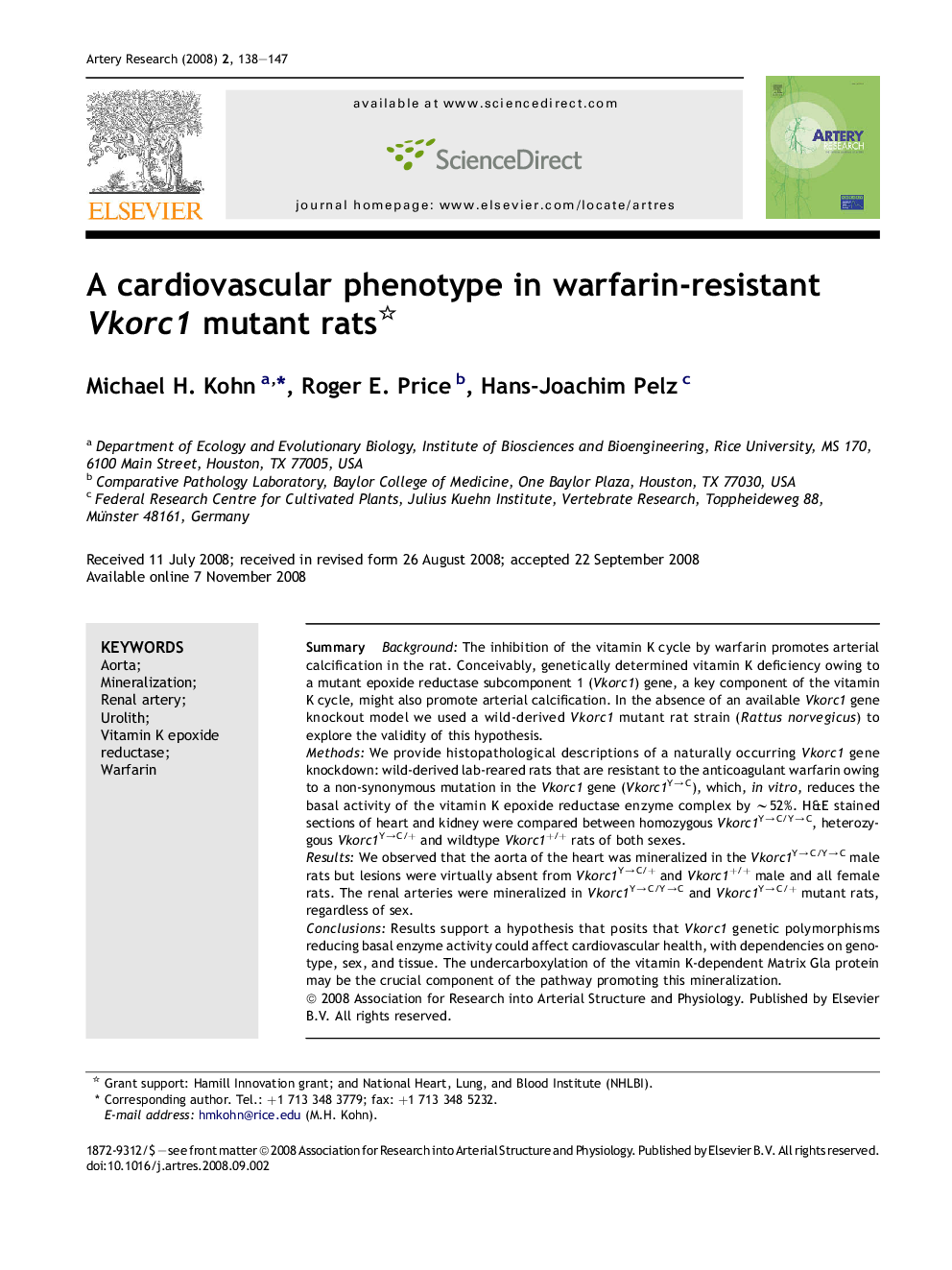| Article ID | Journal | Published Year | Pages | File Type |
|---|---|---|---|---|
| 2892519 | Artery Research | 2008 | 10 Pages |
SummaryBackgroundThe inhibition of the vitamin K cycle by warfarin promotes arterial calcification in the rat. Conceivably, genetically determined vitamin K deficiency owing to a mutant epoxide reductase subcomponent 1 (Vkorc1) gene, a key component of the vitamin K cycle, might also promote arterial calcification. In the absence of an available Vkorc1 gene knockout model we used a wild-derived Vkorc1 mutant rat strain (Rattus norvegicus) to explore the validity of this hypothesis.MethodsWe provide histopathological descriptions of a naturally occurring Vkorc1 gene knockdown: wild-derived lab-reared rats that are resistant to the anticoagulant warfarin owing to a non-synonymous mutation in the Vkorc1 gene (Vkorc1Y→C), which, in vitro, reduces the basal activity of the vitamin K epoxide reductase enzyme complex by ∼52%. H&E stained sections of heart and kidney were compared between homozygous Vkorc1Y→C/Y→C, heterozygous Vkorc1Y→C/+ and wildtype Vkorc1+/+ rats of both sexes.ResultsWe observed that the aorta of the heart was mineralized in the Vkorc1Y→C/Y→C male rats but lesions were virtually absent from Vkorc1Y→C/+ and Vkorc1+/+ male and all female rats. The renal arteries were mineralized in Vkorc1Y→C/Y→C and Vkorc1Y→C/+ mutant rats, regardless of sex.ConclusionsResults support a hypothesis that posits that Vkorc1 genetic polymorphisms reducing basal enzyme activity could affect cardiovascular health, with dependencies on genotype, sex, and tissue. The undercarboxylation of the vitamin K-dependent Matrix Gla protein may be the crucial component of the pathway promoting this mineralization.
